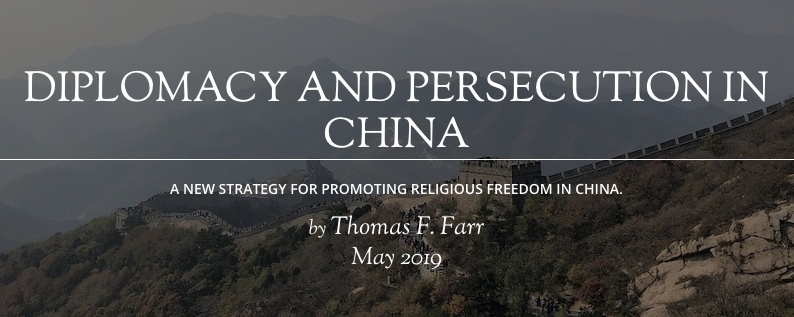In an article in the most recent issue of First Things, Thomas Farr, president of the Religious Freedom Institute, writes that “We are witnessing a global crisis in religious freedom” and that “China presents a particularly troubling case.”
Based on empirical research linking religious freedom to a variety of social goods, Farr calls on the United States to develop an evidence-based strategy for engaging China more effectively on these issues:
A new strategy of pragmatic argument would stand a chance of actually reducing religious persecution in China. Economic growth is a major priority for Chinese policymaking, both domestic and international. If Chinese authorities come to view the country’s religious communities as an economic asset and a driver of modernization, rather than as a source of social and political instability, they will become more receptive to arguments against persecution.
Read the full article: Diplomacy and Persecution in China.
THE RFI BLOG

Is Egypt’s Government Trying To Take Over Christianity’s Most Important Monastery?

Does Southeast Asia Lead the World in Human Flourishing?

RFI Leads Training Session on Religious Freedom Law and Policy for U.S. Army War College

Oral Argument in Charter School Case Highlights Unconstitutional Motives Behind OK Attorney General’s Establishment Clause Claim

Largest Longitudinal Study of Human Flourishing Ever Shows Religion’s Importance
CORNERSTONE FORUM

Reaffirming Religious Freedom: Bridging U.S. Advocacy and Iraq’s Constitutional Framework

Political Polarization, Same-Sex Marriage and Religious Liberty

Bridging the Gap Between International Efforts and Local Realities: Advancing Religious Freedom in the MENA Region

Challenges to Religious Freedom in Iraq and the Critical Need for Action


